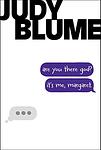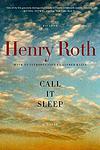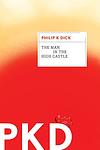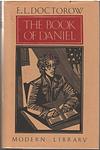The Greatest "Jews" Books of All Time
Click to learn how this list is calculated.
This list represents a comprehensive and trusted collection of the greatest books. Developed through a specialized algorithm, it brings together 284 'best of' book lists to form a definitive guide to the world's most acclaimed books. For those interested in how these books are chosen, additional details can be found on the rankings page.
Genres
The category of "Jews" in books refers to literature that explores the history, culture, religion, and experiences of Jewish people. This category includes both fiction and non-fiction works that delve into Jewish identity, traditions, and beliefs, as well as books that examine the impact of anti-Semitism and the Holocaust on Jewish communities. It also encompasses memoirs, biographies, and historical accounts of Jewish figures and events. Overall, the category of "Jews" in books offers a diverse range of perspectives and insights into the rich and complex world of Jewish life and culture.
Countries
Date Range
Reading Statistics
Click the button below to see how many of these books you've read!
Download
If you're interested in downloading this list as a CSV file for use in a spreadsheet application, you can easily do so by clicking the button below. Please note that to ensure a manageable file size and faster download, the CSV will include details for only the first 500 books.
Download-
1. Portnoy's Complaint by Philip Roth
The novel is a first-person narrative, a monologue by a young Jewish man, Alexander Portnoy, who is speaking to his psychoanalyst. He shares his struggles with his identity as a Jewish man in America, his sexual fantasies and frustrations, his complex relationship with his overbearing mother, and his experiences of guilt and shame. The book uses humor and frank language to explore themes of identity, sexuality, and the Jewish experience in America.
-
2. Are You There God? It's Me, Margaret by Judy Blume
The book is a coming-of-age story about a sixth-grade girl who is growing up without a religious affiliation, due to her parents' interfaith marriage. The protagonist is in search of a single religion while also confronting typical pre-teen issues such as buying her first bra, having her first period, coping with crushes and the changes that come with growing up. The book explores themes of friendship, religion, love, and self-identity.
-
3. Labyrinths by Jorge Luis Borges
"Labyrinths" is a collection of short stories and essays that explore complex themes of infinity, parallel universes, and the blurred lines between reality and illusion. The narratives often feature protagonists who are scholars or librarians, trapped in surreal, metaphysical landscapes. The author's unique writing style combines elements of magical realism, philosophy, and detective fiction, creating an intricate web of narratives that challenge the reader's perception of reality and fiction.
-
4. Ivanhoe by Walter Scott
Set in 12th-century England, the novel follows the story of Wilfred of Ivanhoe, a young Saxon knight, returning from the Crusades. He is disowned by his father for his allegiance to the Norman king Richard the Lionheart. The narrative encompasses themes of chivalry, rivalry, and the struggle between Saxons and Normans, while also highlighting the tension between Jews and Christians. The tale is known for its action-filled tournaments, sieges, and the character of Rebecca, a virtuous and strong Jewish woman.
-
5. Call It Sleep by Henry Roth
This novel tells the story of a young Jewish boy, David Schearl, who immigrates to New York City with his mother in the early 20th century. The narrative explores David's struggles to understand his harsh father, his experiences with anti-Semitism and poverty in the Lower East Side, and his journey of self-discovery through his vivid imagination. The boy's fears and dreams are depicted through a stream-of-consciousness narrative technique, providing a powerful exploration of the immigrant experience and the harsh realities of the American dream.
-
6. Austerlitz by W. G. Sebald
The novel follows the story of Jacques Austerlitz, an architectural historian who was brought to England on a Kindertransport from Czechoslovakia during World War II. As an adult, Jacques embarks on a journey to uncover his past, including his original identity, his parent's fate, and his own lost history. The narrative is a haunting exploration of memory, identity, and the lasting impact of the Holocaust.
-
7. The Man in the High Castle by Philip K. Dick
Set in an alternate history where the Axis powers won World War II, this novel explores life in a world where the United States is divided into three parts: the Pacific States of America, controlled by Japan; the Rocky Mountain States, a neutral buffer zone; and the United States of America, controlled by Nazi Germany. The story follows several characters, including a jewelry designer, a trade minister, and a German secret agent, as they navigate this dystopian reality. The narrative is further complicated by the existence of a banned novel that depicts an alternate reality where the Allies won the war, causing characters to question their understanding of reality.
-
8. Daniel Deronda by George Eliot
"Daniel Deronda" is a novel that explores the intersecting lives of its two main characters: Gwendolen Harleth, a beautiful but shallow young woman who is forced into an oppressive marriage to escape poverty, and Daniel Deronda, a compassionate and intelligent young man who, after being raised by a wealthy English gentleman, discovers his Jewish heritage. The story delves into themes of love, identity, and moral responsibility, set against the backdrop of Victorian England's societal norms and prejudices.
-
9. Schindler's List by Thomas Keneally
The book tells the true story of a German businessman who saves more than a thousand Polish Jews during the Holocaust by employing them in his factories. The protagonist's transformation from a greedy high living war profiteer to a savior of lives forms the crux of the narrative. It offers a chilling yet inspiring account of the horrors of the Holocaust, human resilience, and the power of one individual to make a significant difference.
-
10. Fateless by Imre Kertész
"Fateless" is a harrowing account of a Hungarian Jewish boy's experiences in Nazi concentration camps during World War II. The protagonist is sent to Auschwitz, then Buchenwald, and finally to a factory in Zeitz, enduring brutal conditions and witnessing unimaginable horrors. Despite his experiences, he maintains a detached, almost indifferent perspective, focusing on the mundane aspects of life in the camps, which further highlights the absurdity and horror of the situation. The novel explores themes of identity, survival, and the arbitrary nature of fate.
-
11. Night by Elie Wiesel
This book is a memoir of the author's experiences during the Holocaust, specifically in the Auschwitz and Buchenwald concentration camps. The narrative focuses on the relationship between a father and son under the most extreme circumstances, the loss of faith in God, humanity, and in each other, and the horrifying reality of the systematic genocide of six million Jews during World War II. The book is a poignant and stark examination of the depths of human evil and the enduring power of hope and survival.
-
12. The Human Stain by Philip Roth
The Human Stain is a novel that explores the life of Coleman Silk, a classics professor in a small New England town who is forced to retire after accusations of racism. The story delves into Silk's personal history, revealing that he is a light-skinned African American who has been passing as a Jewish man for most of his adult life. His affair with a much younger, illiterate janitor further scandalizes the community. The novel examines themes of identity, race, and the destructive power of public shaming.
-
13. The Book of Daniel by E. L. Doctorow
"The Book of Daniel" is a semi-fictional novel that explores the lives of the Isaacson family, specifically focusing on the children, Daniel and Susan, after their parents, accused of being Communists, are executed. The narrative is a combination of historical fiction and a political commentary, providing a deep exploration of the Red Scare in the United States during the Cold War era. The novel is a critical examination of social, political, and familial dynamics in a time of national fear and paranoia.
-
14. Little Disturbances by Grace Paley
"Little Disturbances" is a collection of short stories that explore the daily lives and struggles of women, primarily Jewish New Yorkers. The stories are centered around themes of love, loss, and the complexities of life, with a particular focus on the female experience. The author's distinctive voice and vivid characters provide a poignant and often humorous look at the human condition.
-
15. The Plot Against America by Philip Roth
This novel presents an alternate history where aviator-hero and rabid isolationist Charles Lindbergh is elected President in 1940, leading the United States towards fascism and anti-Semitism. The story is narrated through the perspective of a working-class Jewish family in Newark, New Jersey, experiencing the political shift and its terrifying consequences. The narrative explores themes of prejudice, fear, patriotism, and family bonds under the shadow of a fascist regime.
-
16. Eichmann in Jerusalem: A Report on the Banality of Evil by Hannah Arendt
This book is a thought-provoking exploration of the trial of Adolf Eichmann, a major organizer of the Holocaust. The author argues that Eichmann was not a fanatical ideologue, but rather an ordinary individual who simply followed orders and bureaucratic procedures, highlighting the terrifying potential for evil in any system that values obedience over personal responsibility. The concept of the "banality of evil" is introduced, suggesting that horrific acts can be committed by ordinary people under certain conditions.
-
17. Bread Givers: A Novel : a Struggle Between a Father of the Old World and a Daughter of the New by Anzia Yezierska
This novel tells the story of a young Jewish girl growing up in an immigrant family in the Lower East Side of New York City in the early 20th century. The protagonist struggles to balance her traditional father's Old World expectations with her own aspirations for education and independence, a conflict that embodies the tension between Old and New World values. The book explores themes of identity, assimilation, gender roles, and the immigrant experience in America.
-
18. A Legacy by Sybille Bedford
"A Legacy" is a historical novel that captures the social and political turmoil of early 20th century Germany through the eyes of its protagonist. The story follows a young woman who hails from two distinct families, one being a wealthy Jewish family from Berlin and the other, an aristocratic Catholic family from rural Germany. The narrative provides a detailed account of the protagonist's life, her family's eccentricities, and the eventual downfall of her families amidst the backdrop of the First World War and the Weimar Republic.
-
19. Everything Is Illuminated by Jonathan Safran Foer
The novel is a richly layered narrative about a young man's quest to find the woman who saved his grandfather from the Nazis during World War II. The story is told from two perspectives: a Ukrainian translator with a unique grasp on the English language and the young man himself who is also a budding writer. The book explores themes of memory, history, and the power of storytelling, all set against the backdrop of a tragic and tumultuous period in world history.
-
20. Jacob the Liar by Jurek Becker
Set during the Holocaust in a Jewish ghetto in Poland, the novel revolves around a man named Jacob who fabricates the news of the Russian Army's advancement to uplift the spirits of his fellow prisoners. However, as his lies gain traction, they become a beacon of hope for the desperate people in the ghetto, leading to unforeseen consequences. The book explores themes of hope, despair, and the power of words, ultimately questioning the morality of lying for a greater good.
-
21. The Magician of Lublin by Isaac Bashevis Singer
This novel tells the story of Yasha Mazur, a talented and renowned 19th-century Jewish magician living in Poland. Yasha is a complex character, torn between his own desires and the expectations of his religious community. He leads a double life, juggling his career, his marriage, and his multiple affairs. As he grapples with his conflicting identities, Yasha is forced to confront his own moral failings and the consequences of his actions. His journey is one of self-discovery and redemption, offering a nuanced exploration of faith, love, and the human condition.
-
22. Gimpel the Fool by Isaac B Singer
"Gimpel the Fool" is a collection of short stories that portray the life of Gimpel, a simple baker who is often deceived by the people in his town. Despite the continuous deceit, Gimpel maintains his faith in humanity and never seeks revenge. Throughout the stories, the protagonist's innocence and naivety are contrasted with the harsh realities of the world, exploring themes of faith, forgiveness, and the inherent goodness of people.
-
23. Odessa Stories by Isaac Babel
"Odessa Stories" is a collection of short stories set in the bustling city of Odessa, Ukraine, during the early 20th century. Through vivid and colorful characters, the book explores the vibrant and diverse Jewish community of Odessa, capturing their struggles, dreams, and everyday lives. With a blend of humor, tragedy, and satire, the stories paint a rich portrait of a city and its people, offering a unique glimpse into a bygone era.
-
24. The Physician by Noah Gordon
The book tells the story of a young English boy, Rob Cole, in the 11th century who becomes an apprentice to a barber-surgeon. Rob's ambition to become a physician takes him across Europe and into the heart of the Muslim world, a journey fraught with danger and discovery. He disguises himself as a Jew to study at a school that does not admit Christians. The narrative is a captivating mix of history, science, and adventure, highlighting the protagonist's perseverance and the state of medical knowledge during the Middle Ages.
-
25. Goodbye, Columbus by Philip Roth
This novel explores the story of Neil Klugman and Brenda Patimkin, two young Jewish people from different social classes, who embark on a summer romance in 1950s New Jersey. The novel delves into their relationship dynamics, contrasting their backgrounds and dealing with themes of social class, materialism, and the American Dream. The book also includes five short stories, each exploring different aspects of post-war American Jewish life.
Reading Statistics
Click the button below to see how many of these books you've read!
Download
If you're interested in downloading this list as a CSV file for use in a spreadsheet application, you can easily do so by clicking the button below. Please note that to ensure a manageable file size and faster download, the CSV will include details for only the first 500 books.
Download























